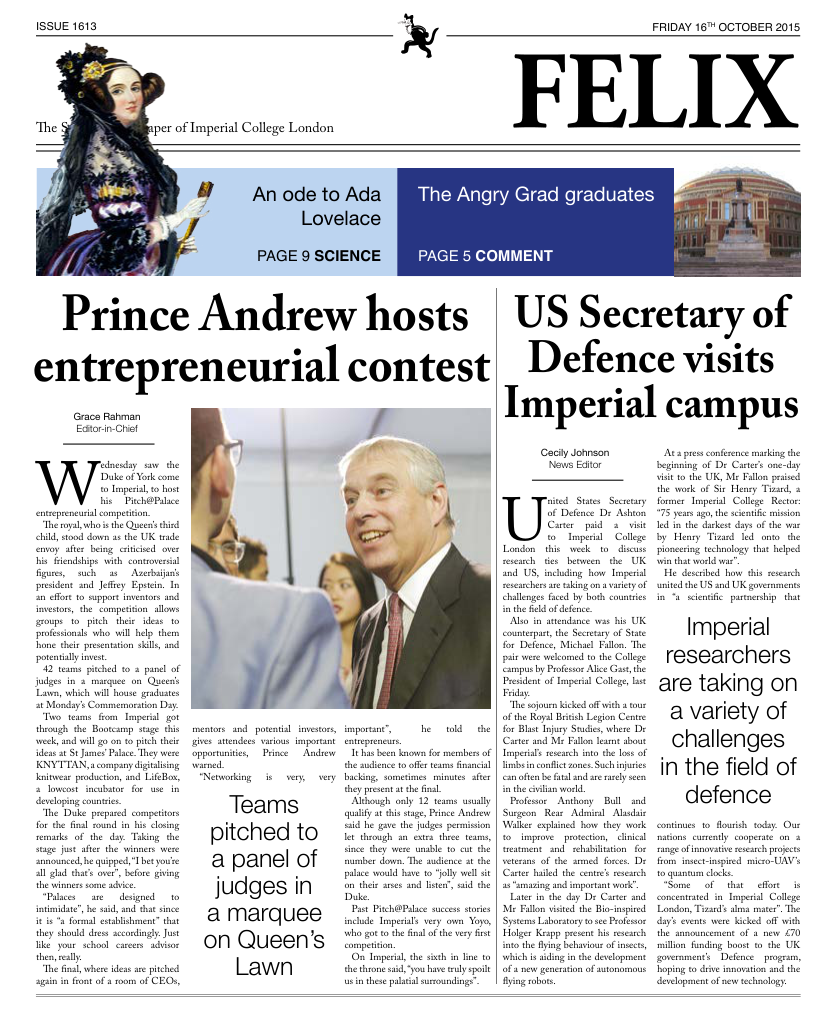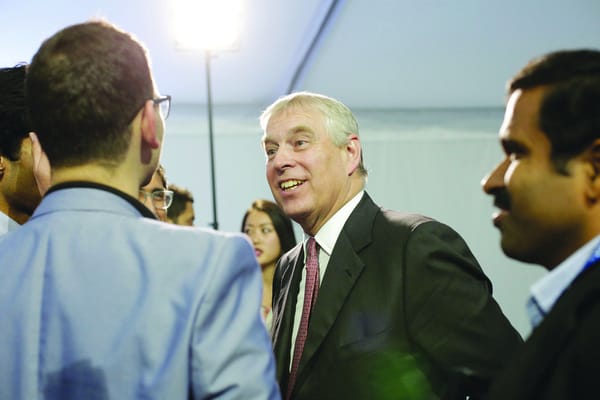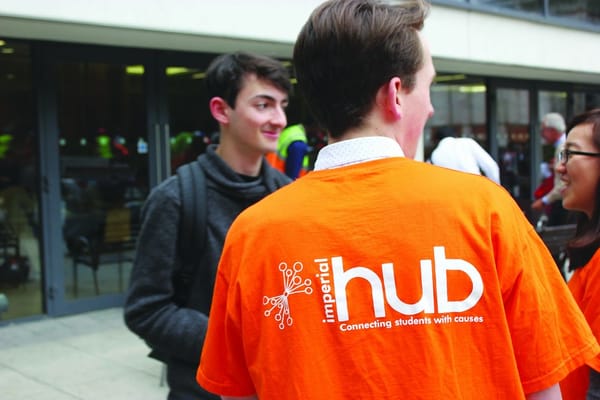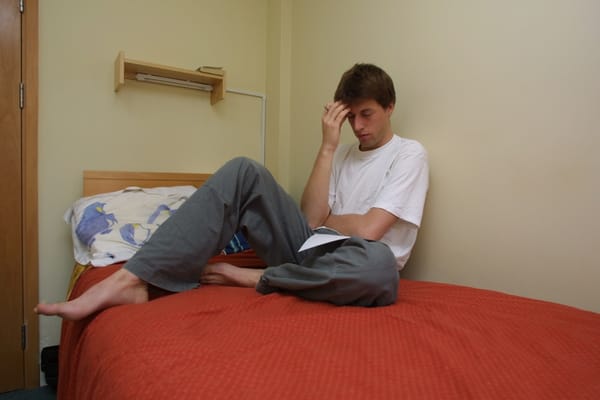US Secretary of Defence visits Imperial campus
Ashton Carter spends his one day in the UK wondering round ICL
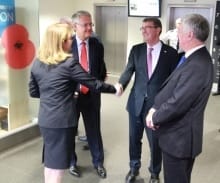
United States Secretary of Defence Dr Ashton Carter paid a visit to Imperial College London this week to discuss research ties between the UK and US, including how Imperial researchers are taking on a variety of challenges faced by both countries in the field of defence.
Also in attendance was his UK counterpart, the Secretary of State for Defence, Michael Fallon. The pair were welcomed to the College campus by Professor Alice Gast, the President of Imperial College, last Friday.
Imperial researchers are taking on a variety of challenges in the field of defence
The sojourn kicked off with a tour of the Royal British Legion Centre for Blast Injury Studies, where Dr Carter and Mr Fallon learnt about Imperial’s research into the loss of limbs in conflict zones. Such injuries can often be fatal and are rarely seen in the civilian world.
Professor Anthony Bull and Surgeon Rear Admiral Alasdair Walker explained how they work to improve protection, clinical treatment and rehabilitation for veterans of the armed forces. Dr Carter hailed the centre’s research as “amazing and important work”.
Later in the day Dr Carter and Mr Fallon visited the Bio-inspired Systems Laboratory to see Professor Holger Krapp present his research into the flying behaviour of insects, which is aiding in the development of a new generation of autonomous flying robots.
At a press conference marking the beginning of Dr Carter’s one-day visit to the UK, Mr Fallon praised the work of Sir Henry Tizard, a former Imperial College Rector: “75 years ago, the scientific mission led in the darkest days of the war by Henry Tizard led onto the pioneering technology that helped win that world war”.
He described how this research united the US and UK governments in “a scientific partnership that continues to flourish today. Our nations currently cooperate on a range of innovative research projects from insect-inspired micro-UAV’s to quantum clocks.
“Some of that effort is concentrated in Imperial College London, Tizard’s alma mater”. The day’s events were kicked off with the announcement of a new £70 million funding boost to the UK government’s Defence program, hoping to drive innovation and the development of new technology.


